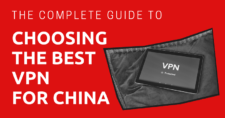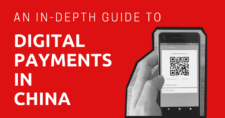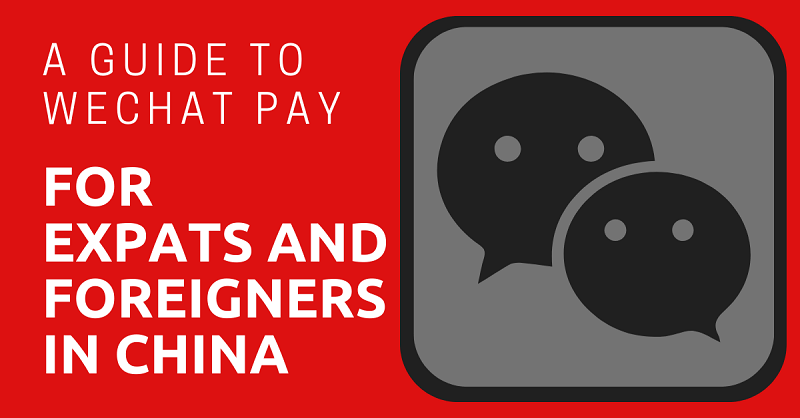
WeChat is one of the most advanced apps on the market and if you are living in China you will need it. WeChat Pay is the most widely accepted form of payment in China next to AliPay, far surpassing cash or cards in popularity and convenience. While some people will be reluctant at first to go cashless, you will be surprised how quickly you adapt to the lifestyle. WeChat Pay is easy to use, accepted everywhere in China universally, integrated into online shopping and food delivery apps, and so wide-spread that even buskers on the streets have swapped the tin cup for a QR code. We are not even joking!
This article will take approximately 10 minutes to read. Don't have the time right now? No worries. You can email the ad-free version of the article to yourself and read it later!
Disclaimer: This article may include links to products or services offered by ExpatDen’s partners, which give us commissions when you click on them. Although this may influence how they appear in the text, we only recommend solutions that we would use in your situation. Read more in our Advertising Disclosure.
Contents
Getting Started with WeChat
As other popular messaging apps like WhatsApp, Messenger, Facebook, and Telegram are all banned in China, make sure that your friends and family back at home also download WeChat so you can stay in touch easily and without the need for a VPN.
To be able to unlock all the features you will need to download it after you arrive in China and can link your Chinese bank account but you can also get a feel for it by downloading it to your foreign number, as Wechat can be used internationally but with limited features. You will have to change your profile to your Chinese number that is linked to your bank account when you arrive in China and set up your phone with your new SIM card.
What Can WeChat Pay Do?
WeChat is more than a messaging app. It encompasses all aspects of social media as well as many mini programs for everything from financial services, daily services, travel, transportation, shopping, and entertainment. Knowing these features and how to use them will make your life in China considerably easier.
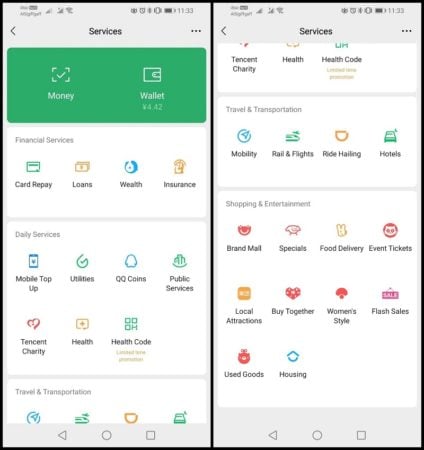
Wallet
This is a key function within WeChat. Electronic payments are the preferred form of payment in China and everyone uses them. Try not to stare the first time you see an old granny flashing her QR code to pay! You are more likely to get a confused look if you try to hand a Beijing cab driver cash these days than if you just hop out and walk away, letting your WeChat integrated payment system complete the interaction using the WeChat built-in car booking app of Didi. Everything is automatic and you will soon love leaving your house without a single bit of tangible money.
Money Transfer
Once you have linked a card to your WeChat, you can now easily transfer money to anyone else with a WeChat wallet. There are two ways you can do this.
If you want to transfer to a contact, simply open your chat with them, press the + symbol in the bottom right-hand corner and then select “transfer” from the options.
This will open up another screen where you can tap in the amount you would like to send, hit transfer and another pop-up will appear prompting you to enter your PIN.
Enter that and the money is immediately sent to the other person. They will receive a notification in the chat where they can tap it to accept or reject the transfer.
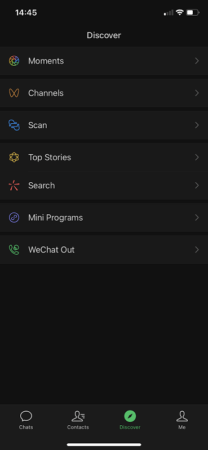
If the person is not a contact of yours they can send you their QR code to receive money by SMS or you can scan this straight from their phone by going to WeChat “discover” and then “scan”.
The same prompts will pop up on your screen to enter the amount and your PIN and again the money will be transferred to their WeChat wallet immediately.
Sending Red Packets – Hong Bao
The classic Chinese tradition of giving people cash in a red envelope used to be limited to birthdays, weddings, and holidays like Chinese New Year, but these days red packets “hong bao” in Chinese are an everyday gift option and they are also electronic.
To send someone an anonymous amount of anything up to 200 RMB as a fun surprise, just click the “Red Packet” icon in your chat with that friend.
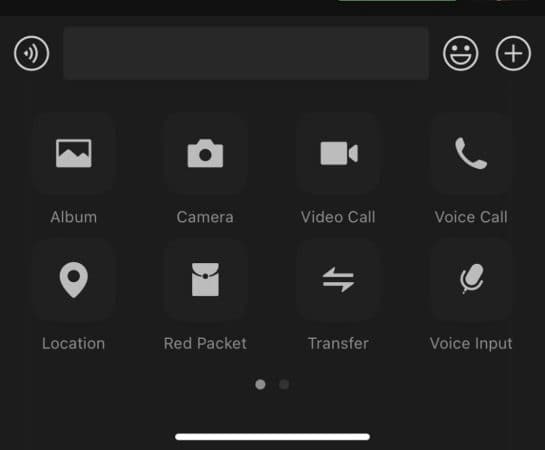
You can send a red packet to a group chat and choose the number of people who can open it. First in first served up to 200 RMB per person. So you can send 800 RMB to a chat with 20 people, but you can say only 4 people can open the packet and each person gets 200 RMB or a random amount. It is a fun game and a way to keep your group chat active.
Adding a Chinese Bank Card to WeChat
Once you have a Chinese bank account, or even a Chinese credit card, you can link it to your WeChat account. Open WeChat, click “me” then tap the “services” button and then the “wallet” icon.
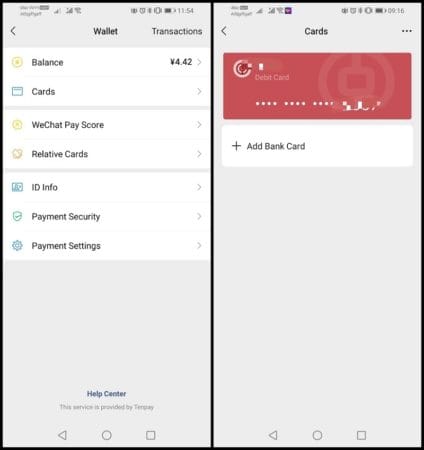
Once in the “Wallet” section, you will see “cards”, click this and then click “add bank card”. The app will now prompt you to verify your identity and this must be done using the same passport information you have linked to your Chinese bank account.
Choose the ID type “passport” and add the information exactly as it is for your bank account. If you have a middle name, you will need to include it too, and be sure to use capitals if your bank has.
Note that sometimes banks like to squash your name together. If your bank book lists you as DOEJANE or DOE MARYJANE then you must input your name in the same way to WeChat Pay.
You will also need to add the phone that is linked to your bank account as you will receive a verification code on that number that you will need to enter.
The final step is to select a 6-digit pin code. Make sure it is something you can remember easily (but not something anyone else can guess, like your birthday) as this is the code you will enter every time you make a WeChat payment.
WeChat Pay Without a Chinese Bank Card
You can now add a foreign credit card to WeChat. The process is basically the same as for a Chinese card, the only difference is the functions available to you if binding a foreign card.
You can use it to pay merchants such as DiDi taxis, Trip, and Air China but you cannot make transfers to individuals or send red packets. You can however use it in-store for merchants’ QR codes so this is still a useful way to access WeChat’s payment function.
Top up WeChat Wallet
Now you have linked your card to WeChat, you can use it to top up your wallet. This is a useful way to keep track of the money you are spending as electronic payments can easily get out of hand!
To manage your money make sure you set your “default payment method” to “balance” in the “Money” section of your app. Once completed, the money will automatically come out of the balance and if there are insufficient funds, you will be notified and asked to authorise payment from your linked card instead.
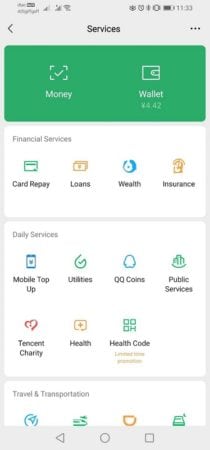
To top up your wallet simply select me – services – wallet – balance – Top Up. You will be asked to input the amount from your linked card and enter your PIN. It is incredibly simple.
Now, on to You
And there you have it, a quick guide to the most useful payment functions WeChat has to offer. If you experience any issues with linking cards you may need to make a trip to the bank to check the details they have on file for you, especially if you have a middle name and a complicated last name.
Depending on where you are, you may also need a Chinese speaker to help you translate as not all bank workers are proficient in English. They will want to help but also may be embarrassed if they do not understand what you are asking for so be patient!
It can feel a little frustrating at first but once you have this set up, you’ll wonder how you ever survived without it!

